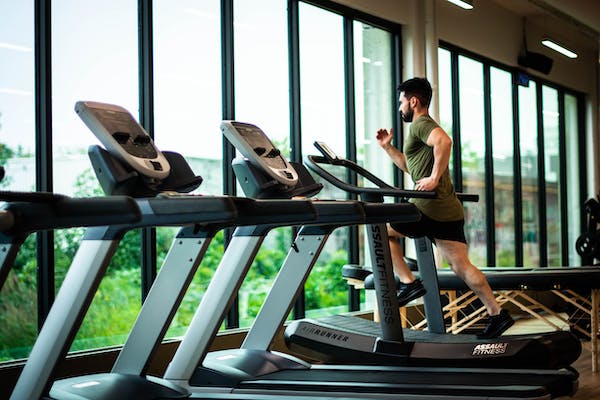Stay Healthy and Fit Learn practical tips for keeping fit, healthy, and vital for men between the ages of 40 and 50. This thorough resource explores diet, exercise, and lifestyle suggestions.
Introduction:
To maintaining optimum health and Fitness becomes more and more important as men approach their 40s and 50s. This period of transition in life necessitates making deliberate changes to one’s way of life, exercise routine, and food. We will examine important tactics that can keep men in this age bracket active, healthy, and fit in this complete book.

Balanced nutrition
Balanced nutrition should be prioritized because, as we age, our metabolisms naturally slow down. Give lean proteins, entire grains, good fats, and a variety of fruits and different colored vegetables because these contain different kinds of nutritious, a priority. Include nutrient-dense foods like nuts, seeds, and oily salmon to get the necessary omega-3 fatty acids that are good for your heart and brain.
Mindful Caloric Intake
With increasing age, calorie requirements drop, so watch your portion sizes to avoid gaining weight. Choose balanced, regular meals over restricted diets. Avoid consuming too many refined carbohydrates and processed sugars, which can cause energy dumps and weight gain.
Strength Training and Muscle Maintenance for Fitness
Strengthen your body frequently to maintain and grow lean muscle mass. Squats, deadlifts, and bench presses are examples of compound workouts you can do to increase your strength and metabolism overall. Plan on doing two or three strength-training sessions per week.
Cardiovascular Exercise
To support heart health and endurance, incorporate cardiovascular exercises. Excellent options include cycling, swimming, jogging, and brisk walking. Try to do 75 minutes of strong exercise every week or at least 150 minutes of moderate cardio.

Flexibility and Mobility
Maintain your flexibility and mobility by engaging in stretching exercises, yoga, or Pilates. These techniques improve joint health, lower the chance of injury, and add to general comfort throughout daily tasks.
Adequate Rest and Recovery
For hormone balance, muscle healing, and cognitive function, a good night’s sleep is crucial. Sleep for 7-9 hours each night, undisturbed. To alleviate stress, use relaxation techniques like meditation and deep breathing.
Hormone Health and Medical Check-ups
Consult a medical expert to keep an eye on your hormone levels and general wellness. As you age, keeping up with routine checkups will help you identify and manage any potential health issues
Hydration Matters
To maintain metabolism, energy levels, and general bodily processes, stay hydrated throughout the day. Consume hydrating foods, including vegetables and fruits, herbal teas, and water.

Social Engagement and Mental Well-Being
Keep close relationships with others and take part in enjoyable and stimulating activities. To support mental health, engage in hobbies, spend time with loved ones, and engage in stress-reduction activities.
Consistency and Patience
Keep in mind that achieving your health and fitness objectives takes time. The key is consistency, and it can take some time before you see benefits. Keep striving for minor successes and your general well-being.
Conclusion:
Fitness and health shouldn’t be compromised as you approach your 40s and 50s. You can continue to live a satisfying, active, and vibrant life by putting an emphasis on balanced eating, remaining physically active, and taking care of your mental well-being. Adopt these tactics and start a fitness and health journey that will help you comfortably navigate this period of change in your life.

